Table of Contents[Hide][Show]
What’s all the fuss about gut health? It seems to be a buzzword everyone is talking about these days. With all the information available, we figured we should cut through the noise and get straight to the source.
So we asked a scientist. Someone who knows what they’re talking about when it comes to the gut. No more sifting through countless articles trying to figure out what on earth is going on in there.
We had Kiran Krishnan join our COO, Rachel Pachivas, for a discussion on the microbiome on our Facebook Live channel.
Meet Kiran
Kiran has been involved in the dietary supplement and nutrition market for the past 15 years. He comes from a strict research background having spent several years with hands-on R&D in the fields of molecular medicine and microbiology at the University of Iowa.
He has designed and conducted over 10 clinical trials as a partner in a contract research organization called Live Smart, Inc. Over the past 10 years he has focused his knowledge and experience to developing unique and effective nutritional products for other well-known brands in the dietary supplement market.
Can you help us understand the disrupters between the gut and thebrain?
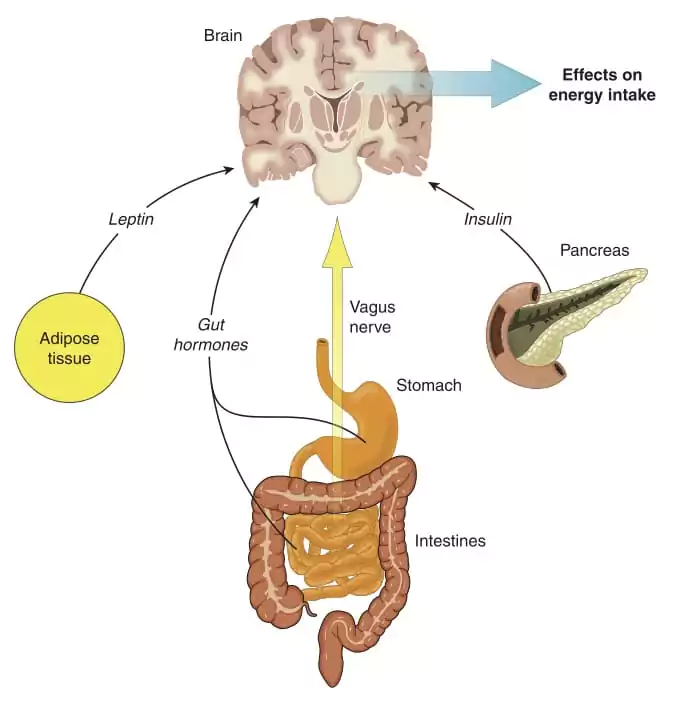
Kiran: The gut and the brain is directly connected through something called the vagus nerve. You have a nervous system called the enteric nervous system, which is a nervous system that covers your entire digestive tract, from your mouth, your esophagus all the way down to your bottom.
So what interferes with this system?
The thing that interferes with that is inflammation. So inflammation from the gut, and typically from leaky gut, means toxins and inflammation migrates from the lumen of the gut, which basically corrupts how that enteric nervous system works.
When that happens on a regular basis, you start getting the nerves actually dying and not functioning the way they’re supposed to function, and then that causes a disruption of the gut-brain communication.
How does the microbiome affect aging and your skin?
Kiran: One of the things we know about age as it relates to the microbiome is that, as you get older, you start to lose the diversity in your microbiome.
One of the aspects of your microbiome being healthy is that you should have a very diverse set of microbes in your microbiome. Part of that is because the more diversity you have, the harder it is for outside borne infections to invade. Basically, there are more players in your gut that can perform more functions for you.
when you lose diversity, you lose functionality
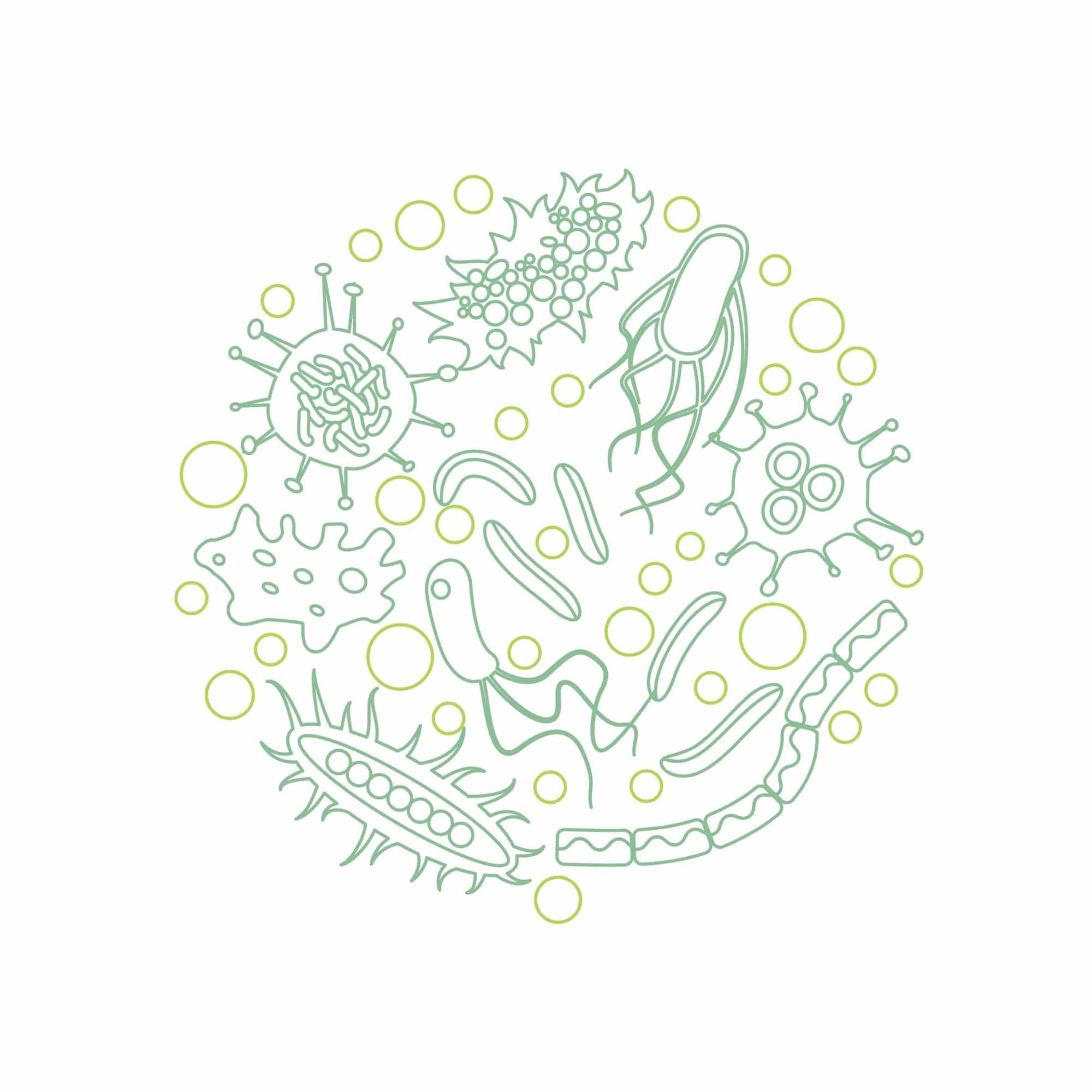
With a diverse microbiome, you also have more activities that your body can conduct. When you age you start to lose that diversity in your microbiome. When you lose the diversity in your microbiome, you lose functionality in the microbiome. And one of the really critical functions of the microbiome is maintaining the health of your skin.
Your skin really is a reflection of how healthy your insides are, right? And the moment your insides start to become perturbed and start to become unhealthy, you will first see it on your skin.
your skin will show it!
Your skin, hair, and nails bear the brunt of nutrient deprivation, of inflammation and dysfunction inside the body because those are non-essential organs in terms of how they look and how they function.
So your body is going to concentrate making sure your brain, heart, and vital organs get the right amount of nutrients. Your skin, and your hair, and your nails will be the ones that get deprived.
From the inside out
The skin becomes a real reflection of the aging body on the inside. Of course, there is going be some natural amount of aging that goes on the skin. The good news here, is that can be maintained, through gut health upkeep.
How does gut bacteria affect hormones?
Kiran: Well, as it turns out, every hormone that our endocrine system (our system that produces hormones) can produce is also produced by the gut microbiome.
In fact, there is evidence that shows that the gut microbiome actually taught the rest of the body how to produce these hormones, including things like testosterone, estrogen, serotonin, and dopamine.
microbiome back-up
We’ve actually started to see that our endocrine system is actually inadequate to produce and metabolize all the hormones that we need. So, our endocrine system calls upon our microbiome to produce hormones for it in order to make up the difference.
If you don’t have a healthy microbiome, you’re not going to be producing those hormones. This means you’ll either end up in a deficiency of a particular hormone or you’ll end up in an over expression of other hormones.
and how does this affect my skin?
We also know that hormones can play a huge role in how our skin looks. If we don’t have adequate hormone production from our gut, which means having a diverse, healthy microbiome, then you will run into hormone deficiencies, which will affect the skin quite dramatically.
Can taking probiotics help balance your hormones?
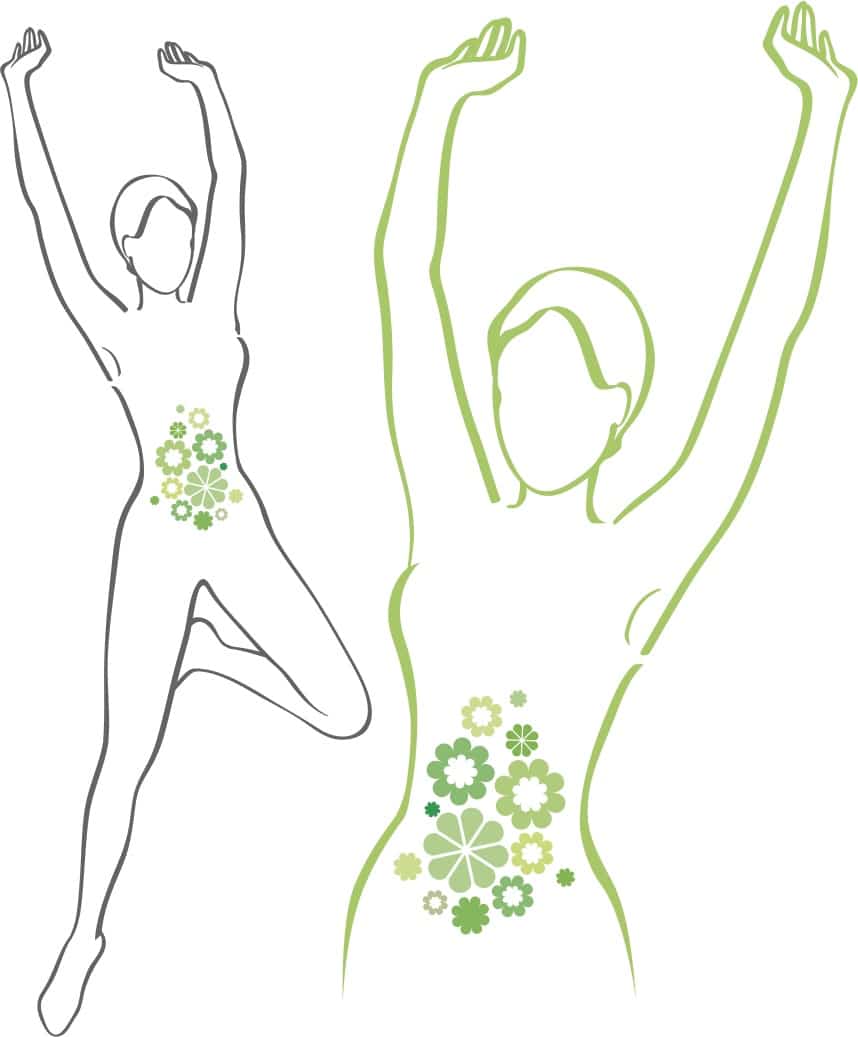
Kiran: Absolutely. But there are two aspects to keep in mind. First, you need a probiotic that has been shown to actually increase the diversity and functionality of the microbiome, which means it has to increase the growth of other good bacteria within the gut itself.
And second, increase the diversity of your diet. Alot of what drives the types of bacteria that live in your gut are the types of foods that you eat.
An ancestral diet
Our ancestors consumed up to 600 different types of foods annually. A healthy Westerner eats maybe 20 different types of foods. Our ancestors were hunters, gatherers, foragers, so they foraged for food, they dug for roots and tubers. They ate a variety of seeds and nuts, berries and all kinds of animals.
Increasing the diversity of your diet will increase the diversity of your microbiome, which then helps the propagation of beauty from within. Getting the right probiotic can recondition your gut so you can have more of your good bacteria growing, and increasing diversity of the diet will make a significant change in how your body responds to the world around you.
What about fermented food? Do they count as probiotics, or how are they different?
Kiran: That’s a typical misnomer. Fermented foods aren’t really a source of probiotics. The moment you eat it, the bacteria living inside the fermented food will die in the stomach.
benefits of ferments
But they are really beneficial, nevertheless. Humans have been consuming fermented food for over 10,000 or more years.
The magic that they produce is in the ferment itself, so during the course of fermenting the food, the ferments essentially predigested the food and created a bunch of really useful things like organic acids, peptides, and Vitamin B6 and B12. Those nutrients will actually feed a lot of the good bacteria within your gut.
Are there any foods that actually act as a probiotic?
Kiran: As far as foods that actually act as a probiotic, I can’t think of any. Like yogurt, for example, is a fermented food but it’s not really delivering any live bacteria into your system.
What about probiotic strains? what do you recommend?
Kiran: I’m currently involved in 11 human clinical trials on probiotics, so we’re doing a lot of work on probiotics. The probiotic we typically use is a spore-based probiotic.
why spore-based?
The spore-based probiotics have an armor-like coating when they’re outside of the body, which allows them to reenter the body through the gastric system and survive through the stomach acid, because they’re protected with this coating. The moment they get into the intestines, they break out of this coating and they become this live functioning probiotic bacteria cell in your gut.
They’re also designed to have a protective function within the gut. They can read the microbial environment, and perform something called quorum sensing. This means when they find pathogenic or overgrown of bad bacteria, the will actually go sit next to it and produce up to 25 different antibiotics to kill off the bad bacteria. They then produce a prebiotics and other compounds to regrow your good bacteria.
leaky gut rescue
We also published a study last year in August in 2017 showing that adding these spores in just 30 days will completely heal your leaky gut. It was the first time any compound naturalist or pharmaceutical has been shown to alleviate leaky gut in a human study in just 30 days.
leaky gut and skin?
It has such profound effects because one of the biggest things that impacts the appearance of the skin is leaky gut. You know, the same leaky gut that causes heart disease, diabetes, and a whole slew of autoimmune conditions. If we can stop the leakiness of the gut, we can stop all of the inflammation and all the toxins that leak into the circulatory system.
What about the unrefrigerated stuff? Is it most likely dead already?
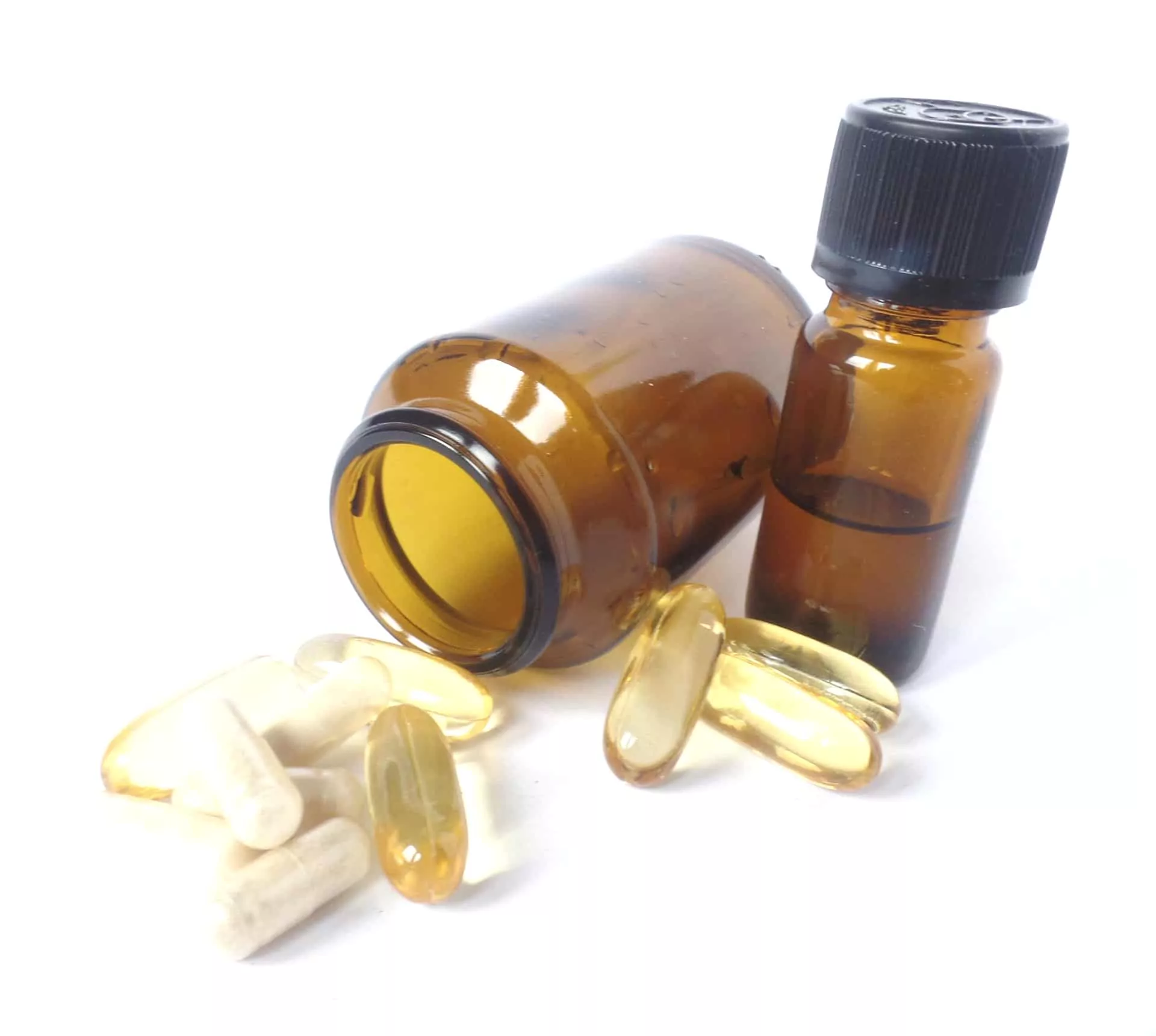 Kiran: Yeah. I mean there has been numerous studies outside of what we’ve done, but in the studies we’ve done, most recently we took 46 of the top selling probiotics in the supplement space and there were two very disturbing things that we saw.
Kiran: Yeah. I mean there has been numerous studies outside of what we’ve done, but in the studies we’ve done, most recently we took 46 of the top selling probiotics in the supplement space and there were two very disturbing things that we saw.
Number one, 99% of them did not survive through the gastric system, so the vast majority of probiotics you have access to will just basically die through the stomach, if they’re not already dead in the bottle.
what’s really in your probiotic?
Now, the other disturbing thing, is from a study done by University of California and published in the Journal of Nature (the number one scientific journal out there) in 2015.
They took 16 different probiotics products from California health food stores and bought a couple online as well, and did DNA analysis on the strains that were inside the capsule. They were looking to see was how many of the products have the same strains inside the capsule as what was claimed on the label to be in the product.
Out of 16 products that they tested, only one matched. 15 out of 16 products, 94% of the products they tested, had different bacteria in the capsules than what was being claimed on the label.
If somebody is a beginner to probiotics, what would you tell them?
Kiran: I think the basic thing is, you really need to find probiotics that have been shown to survive through the gastric system, have been able to create a real, functional change in the microbiome. What you’re really trying to do with probiotics is to make a significant, measurable change in the microbiome that is long lasting and more permanent. (That’s where the spore-based probiotics come into play.)
diversify your diet
There are a couple of other things to keep in mind with regards to your gut health. One is, as we mentioned, the foods that you eat play a significant role in what grows in your gut.
The more diverse your diet is, the healthier and more diverse your microbiome is going to be.
organic matters
Try to go towards organic as much as you can. One of the main reasons for that is to reduce your exposure to glyphosate.
Glyphosate is the active ingredient in Roundup, it’s the most widely used pesticide there is on the marketplace—they’re basically soaking crops in it even before harvesting. Studies show that a continuous exposure to this selectively kills good bacteria and allows bad bacteria to flourish.
environment affects your gut health
The last thing I recommend is cleaning up your environment—and that’s the opposite of what it probably sounds like. When I say cleaning up the environment, I don’t mean actually cleaning it, because sterilization of our household is actually a really problematic thing.
Studies are shown that households that use chlorine-based sanitizers and cleaners have kids with higher incidence rates of viral infections, allergies, asthma, and other immune dysfunction. The more you can develop a healthy microbial environment in your home, the better it is for all the inhabitants of the home.
One of the ways of doing that is using a dog. Studies have shown that kids in households with dogs have lower incidence rates of allergies, because dogs bring in bacteria from the environment and inoculate your house with these good bacteria.
Mindfulness and the Microbiome?
Kiran: One of the best things you can do that will impact your microbiome and then thus improve your skin is mindfulness work. We know that stress is a big inducer of leaky gut.
So getting your stress under control will play a significant role in the health of your microbiome. Of course, that means mindfulness work. It means doing some small amount of meditation every day.
oxytocin increase
The other thing is increasing oxytocin. If you increase oxytocin, it counteracts stress hormones, which will then end up helping fixing your gut. One of the ways of increasing oxytocin is interaction with other humans.
Studies show that a simple hug and embrace by somebody else actually increases oxytocin. Complimenting other people actually increases your oxytocin, believe or not. If you notice if you put a smile on somebody’s face, that triggers oxytocin release in your own brain. So making people feel good about themselves is a good thing for your health.
Where do I get Spore-based probiotics?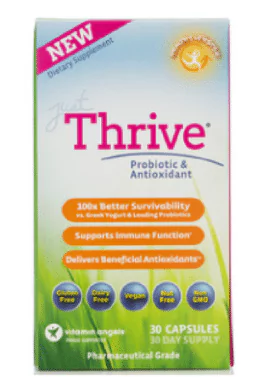
Kiran: Just Thrive Probiotic and Antioxidant is the one we do all our studies with the spores.
It includes all the benefits of spore-based probiotics as listed above, and produces things like astaxanthin, zeaxanthin, lycopene, lutein, alpha and beta carotene, all of these amazing colored antioxidants and carotenoids right in your gut for you, like a super antioxidant factory in your system.
We’re sharing!
We’re so thrilled about Just Thrive and spore-based probiotics that we’re sharing our coupon code with you. Just use code ASC20 at checkout for 20% off your order.
use code ASC20 at checkout for 20% off your order!
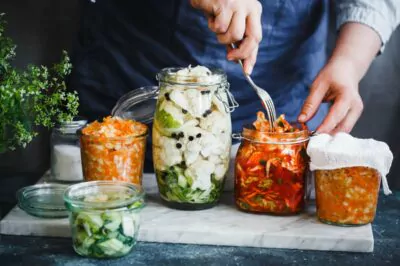
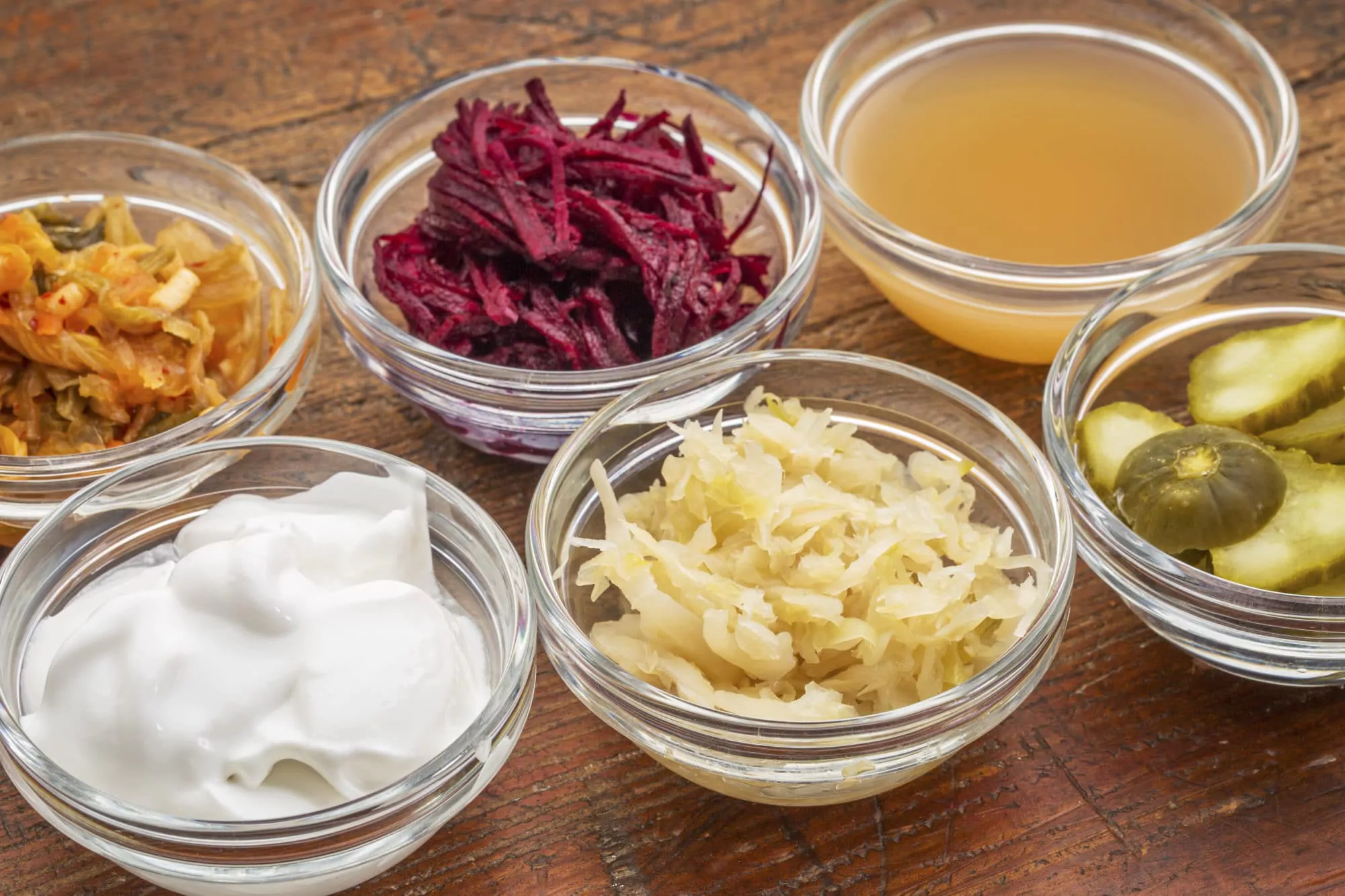


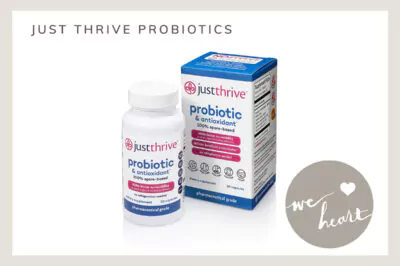

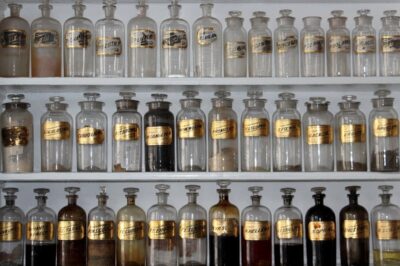
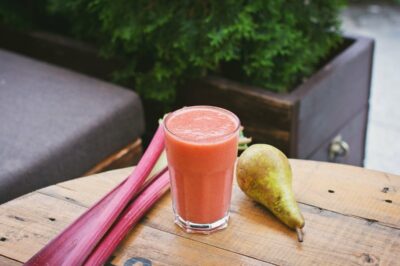
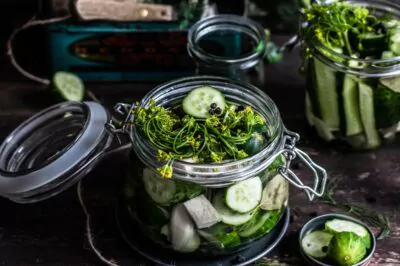
Do you use probiotics? How have they affected your gut health? Share your experience in the comments.